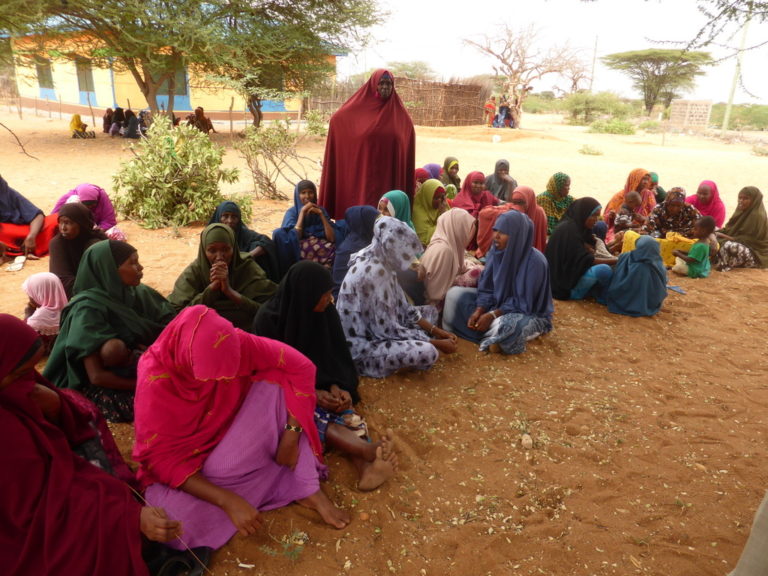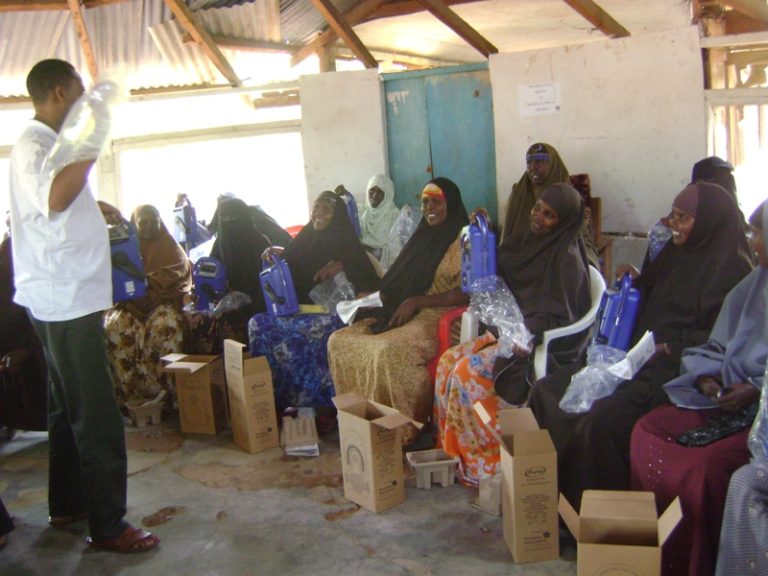Ganyurey, Kenya August 10 — It is 4 PM in the evening, and Halima Hassan, a pupil in Ganyurey Primary School, has just returned from a COVID-19 pandemic awareness session ready to help her mother in milking camels.
As a 12-year old and in class seven, Halima is among hundreds of girls in Ganyurey village in Wajir County striving to escape from the curse of forced early marriages that are turning out to be one of the outdated cultural practices still rampant in the region.
Halima was nearly being forced into early marriage to a 69 years old man but she resisted and insisted on pursuing her education to the disbelief of her parents.
And she has now joined forces with gender and good cultural practices advocates to tame the perpetrators of this entrenched, heinous, backward, and exploitative culture.
According to statistics from the Wajir County Social Services office, between 2005 to 2014 an estimated 2,000 forced and early child marriages cases were reported in the County.
And the youngest girls to be forcefully married were eight years old and were married to old men aged between 60 to 94 years old.
These alarming statistics also show that the sexual pests escaped justice by just paying a number of goats or cattle to the parents of the affected girls.
Data availed by Wajir County Social Services office shows that between 2005 to 2014 an estimated 3,000 goats and 5,000 cattle were paid as dowry to parents of the underage girls forced into early marriage.

These horrendous statistics have elicited outrage among Wajir County residents resulting in Community-Based Organizations (CBOs) like Frontier Indigenous Network to come up with initiatives to curb and eradicate cases of the girl child forced early marriages.
According, Mrs. Naima Abdi, a program officer with, Frontier Indigenous Network, a women rights advocacy organization, one way they have come up with to deal with the problem of child marriages is to establish literacy centers dubbed “safe spaces” to help sensitize the communities in Wajir County on why they should disregard forced early marriages and foster the education of the girl child.
“The safe spaces idea was meant to address the rampant problem of child marriage and female genital cutting menace, but it has also evolved into tackling other societal issues like creating awareness on COVID-19 pandemic, fake news peddled by conservative elders and individuals supporting religious fundamentalism,’’ Mrs. Abdi says.
The initiative known as girls’ and boys’ spaces offers school-going children a platform to engage and share ideas on issues affecting them at their villages and schools and provide mentors to moderate their discussions.
So far, the initiative has assisted the school going children to engage on various issues like girl child education, fighting outdated cultural practices like female genital mutilation, early forced marriages and climate change, and environmental conservation awareness among other issues.
According to United Children Fund (UNICEF), Kenya has the 20th highest absolute number of child brides in the world – 527,000 and 23 percent of Kenyan girls are married before their 18th birthday and 4 percent are married before the age of 15.
Every day, Halima treks for some two kilometers from her village to attend awareness sessions at the nearby “safe space” center amid hostile weather and temperatures that at times reach 36 degrees Celsius.
Today, Halima is one of the mentors to her colleagues at their village “safe space” center where she narrates the horrendous experiences she went through in resisting being married to a 69-year old man.

And even with all the health protocols introduced by the Ministry of Health and County Governments to curb the spread of the COVID-19 pandemic, the girls attending “safe space” centers have maintained social-distancing and other preventive measures.
Initially, the “safe spaces” were hubs for school going girls and boys to discuss critical issues and suggest solution and action plans at school level while engaging teachers and the school administration, but since the Coronavirus outbreak they have evolved into also educating local communities about the dangers posed by the COVID-19 pandemic.
Amongst the key challenges tackled by the initiative, is fighting adverse fake news on the pandemic like allegations that the disease is a biological weapon targeting Muslims.
In one of the mentoring sessions, Halima tells her colleagues how one day she arrived back home from school and found a group of elders had gathered at her father’s home to offer a marriage proposal for her and discuss dowry with the family.
Halima a fourth born in a family of six and the only daughter, said she was gripped by fear on being told what was happening, but she gathered courage to tell-off her parents and the gathered crowd.
“I was carrying a load of firewood when I saw a group of women outside our family home dancing and ululating and their dressing code was that of a dowry negotiation ceremony. I was shocked, terrified, and felt pain all over my body. But I gathered confidence and told myself that I was going to resist,’’ she said.
Halima who was eventually rescued from the forced early child marriage scheme by her parents told her colleagues at Ganyurey Primary School Wajir County, during one of the mentoring sessions.

At the time, Halima was barely 12 years old and her parents were negotiating for a dowry to marry her to a 69-year old man.
She said her mother also objected to the plan forcing her father to engage her in secret consultation before her mother ordered the elders to leave her homestead.
Her father was salivating for 10 head of cattle her suitor was offering after her father lost his entire herd due to prolonged drought.
This development indicates that climate change is also playing a pivotal role in the rampant cases of forced early marriages in semi-arid and arid regions in Kenya.
According to the Executive Director with Wagalla Centre for Peace and Human Rights, Mr. Adan Garad, climate change, and now COVID-19 pandemic are playing a role in increased cases of forced early marriages in Wajir County.
“Increased cases of forced early marriages in Wajir County can partly be blamed on a combination of climatic shocks and effects of COVID-19,” Mr Garad said.
As part of her community initiatives, Halima who is now a “safe spaces” mentor together with officials of Frontier Indigenous Network decided to pass the controversial topic of forced early marriages to school heads and boards that have resulted in well-structured awareness campaigns.
Currently, there is prompt action from schools whenever their pupils or students report incidents of attempted forced early marriages.

The school’s management then summons affected girl’s parents and inform them it was against Kenyan law to wed under age school going girls and are enlightened on the importance of educating girls.
According to Mrs. Muslima Mohamed, a teacher in one of the local schools in Wajir County, the “safe spaces” initiative has greatly improved enrollment of girls in both primary and secondary schools.
“We are very grateful to the “safe spaces” initiative because we are seeing the results and we are asking both the county government and the national government to support such initiatives,” Mrs. Mohamed said.
The impact of the “safe spaces” initiative has made the Frontier Indigenous Network establish 25 school and community safe spaces supporting more than 1,000 students and youth and reaching out to 4,000 Wajir West villagers.
“The impact made us increase the spaces to 25 and the initiative has so far stopped 398 planned forced early child marriages from 2015 to 2020 and further disrupted 400 such marriage organized under COVID-19 period,’’ Mrs. Amran Abdundi, Executive Director of Frontier Indigenous Network says.
The “safe spaces” initiative is going to be remembered as a community-based project that tackled a key problem in addressing the education of the girl child in Wajir County.





















